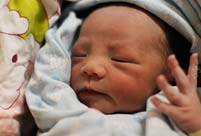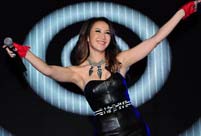Tennis star's coach says stories about her steroid use 'totally made up'
China's tennis queen Li Na has once again found herself at the center of controversy after a recent New York Times profile caused misunderstanding that the 2011 French Open champion took banned substance at the advice of her former coach.
According to the profile story published on Sunday, Li was persuaded by then-coach Yu Liqiao to take steroid pills in 2002 despite of her allergy. In the article, Yu also tried to prevent Li from dating Jiang Shan, who would later become her husband, forcing Li to temporarily retire in 2002.
The article triggered sensation on Chinese media outlets, which translated it into Chinese but wrongly identified the substance Li took was testosterone, a performance-enhancing drug banned by the anti-doping authorities around the world.
China's Anti-Doping Agency denied the allegation.
"Steroids in general are a kind of medicine, and only testosterone, which is also a type of steroid, is widely considered as a banned substance in sports," said Zhao Jian, deputy-director of China's Anti-Doping Agency, as reported by Beijing Youth Daily on Wednesday.
Brook Larmer, who wrote the story for the Times, conceded that the information about Li taking steroid pills was not quoted directly from the player but sourced from her autobiography. In it, she said she took pills to treat menstrual disorders before the 2002 Asian Games.
Yu denied the allegations on Wednesday that she had tried to persuade Li to take drugs.
"It's something totally made up. I never taught my players to improve their performance by doping. It's not working in tennis, and I don't believe that's what Li said," said Yu as quoted by Yangtze Evening News on Wednesday.
Media blamed
Sports public relations experts said the Chinese media misled the public about Li taking a banned substance because of their lack of ethics.
"Some media only pursue sensational and eye-catching news without paying enough attention to verifying the facts and their sources," said Hong Jianping, a sports PR researcher with Beijing Sport University, on Wednesday.
"High-profile sports stars will always be victims of false reports because people are interested in celebrity rumors and a lot of media, especially websites, thrive on people's interests."
Hong said Li is a typical target because she is outspoken, has a fiery temper and previously had a conflict with China's governing body of tennis.
Adam Zhang, founder of sports consultancy company Key-Sports, echoed Hong's sentiment, stressing that Li's individuality, which contrasts sharply from other Chinese athletes, easily sparks debate.
"Li's straightforward personality makes her a unique presence because individuality is not promoted in China's traditional sports system," Zhang said. "And the media would like to take advantage of that, turning each of her aggressive comments into sensational news."
Li's outspoken views have always stirred debate in China, most recently when she claimed "that (representing her country) is too big a hat for me to wear" in the New York Times profile.
This isn't the first occasion that Li has stressed that she plays for herself, and she has frequently drawn condemnation from the Chinese media and outrage on China's popular micro-blogging platform Sina Weibo, even among her 21 million followers.
Although Li's budding romance with Jiang was squelched by the State-run sports system in the early 2000s, Li still sports tattoos on her chest and lower back that boldly declare her love for Jiang. She dyes her hair different colors and she's not afraid to shout "shut up" to crowds at tennis tournaments.
But a more mature Li said she has learned to handle the media spotlight and criticism with a calmer mindset.
"I actually started to feel grateful to the media. Everyone has to experience something before growing up. Without these reports, I won't experience so much ups and downs and I won't be as mature as I am right now," Li said after winning the first round at the US Open on Tuesday.
 Weekly selection of world photos (Aug.19-Aug.24)
Weekly selection of world photos (Aug.19-Aug.24) Preview of Moscow air show
Preview of Moscow air show Top 10 Chinese provinces for the well-heeled
Top 10 Chinese provinces for the well-heeled  Fan Bingbing poses for Malaysian magazine Citta Bella
Fan Bingbing poses for Malaysian magazine Citta Bella Wild dream: Hell-like training for bodyguard
Wild dream: Hell-like training for bodyguard  Zhang Xinyi covers COSMOPOLITAN
Zhang Xinyi covers COSMOPOLITAN The story of a savior sibling
The story of a savior sibling China’s weekly story
China’s weekly story  A collection of bizarre rooftop buildings around China
A collection of bizarre rooftop buildings around China 100th birthday of 'Little Mermaid'
100th birthday of 'Little Mermaid' Escort taskforce holds live-fire training
Escort taskforce holds live-fire training Adorable! Marmots get along well with herdsmen
Adorable! Marmots get along well with herdsmen 2013 Taiwan Int'l Tourism Expo kicks off in Taipei
2013 Taiwan Int'l Tourism Expo kicks off in Taipei Photo story: Take a gap year
Photo story: Take a gap year Nokia's Global Headquarters: visiting a declining empire
Nokia's Global Headquarters: visiting a declining empireDay|Week|Month